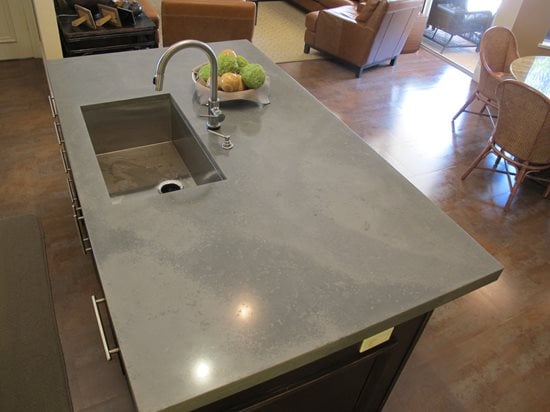Concrete countertops have become increasingly popular in recent years due to their versatility, durability, and unique aesthetic appeal. Whether you’re considering concrete countertops for your kitchen, bathroom, or outdoor space, there are numerous design ideas and options to explore to create a stunning and functional surface.
Custom Shapes and Sizes: One of the advantages of concrete countertops is their ability to be custom-designed to fit any space. Unlike traditional countertops, which are often limited to standard shapes and sizes, concrete countertops can be poured and molded into virtually any shape or size, allowing for unique and custom designs tailored to your specific needs and preferences.
Integrated Sinks and Drainboards: Concrete countertops offer the flexibility to incorporate integrated sinks and drainboards directly into the countertop surface. This seamless integration not only creates a cohesive and streamlined look but also eliminates the need for separate sink installations, maximizing space and functionality in the kitchen or bathroom.
Textured Finishes: Concrete countertops can be finished in a variety of textures to add visual interest and tactile appeal to the surface. From smooth and polished finishes to textured and distressed finishes, there are endless possibilities to customize the look and feel of your concrete countertops to match your desired aesthetic.
Color Options: While concrete countertops are often associated with a natural gray color, they can be customized with a wide range of color options to complement any design scheme. Pigments and stains can be added to the concrete mix to create custom colors, ranging from subtle neutrals to bold and vibrant hues, allowing for endless creativity and personalization.

Decorative Accents: Concrete countertops can be embellished with decorative accents such as embedded glass, stones, or metal accents to add visual interest and personality to the surface. These decorative elements can be incorporated seamlessly into the concrete during the casting process, creating one-of-a-kind countertops that are truly unique.
Veining and Marbling: For a more luxurious and natural look, concrete countertops can be designed to mimic the appearance of natural stone with veining and marbling effects. These effects can be achieved through various techniques such as hand-painting, staining, or using specialized molds and tools, resulting in countertops that closely resemble the look of marble or granite.
Exposed Aggregate: Exposed aggregate is a popular technique used to enhance the aesthetic appeal of concrete countertops. This technique involves exposing the natural aggregates such as stones, pebbles, or glass within the concrete mix by grinding away the top layer of cement, revealing the textured and visually striking surface beneath.

Custom Edge Profiles: Concrete countertops can be customized with a variety of edge profiles to add character and style to the surface. From sleek and modern straight edges to more intricate and ornate profiles such as bullnose or ogee, there are numerous options to choose from to achieve the desired look for your countertops.
Embedded Features: In addition to decorative accents, concrete countertops can also incorporate functional features such as embedded cutting boards, trivets, or drain trays directly into the surface. These embedded features not only add convenience and functionality but also contribute to the overall design aesthetic of the countertops.
Sealing and Maintenance: Proper sealing and maintenance are essential for ensuring the longevity and durability of concrete countertops. Sealing the surface with a high-quality sealant helps to protect against stains, moisture, and damage, while regular maintenance such as cleaning with mild soap and water can help preserve the beauty and integrity of the countertops over time.
Heat Resistance: Concrete countertops are naturally heat-resistant, making them an ideal choice for kitchens where hot pots, pans, and dishes are frequently used. However, it’s still advisable to use trivets or hot pads to protect the surface from direct contact with extreme heat to prevent potential damage or discoloration.
Cost Considerations: While concrete countertops offer many design possibilities and benefits, it’s essential to consider the cost implications compared to other countertop materials. While concrete countertops can be more affordable than natural stone or quartz countertops, they typically require professional installation and may involve additional costs for customization and sealing.
Environmental Impact: Concrete countertops are considered to be an eco-friendly option compared to other countertop materials such as granite or quartz, which require extensive mining and manufacturing processes. Concrete is made from readily available natural materials such as cement, aggregates, and water, making it a sustainable choice for environmentally conscious homeowners.
Versatility: Concrete countertops are incredibly versatile and can be used in various applications beyond the kitchen and bathroom. From outdoor kitchens and bars to custom furniture pieces and decorative accents, concrete countertops offer endless possibilities for adding style and functionality to any space.
Longevity: When properly installed and maintained, concrete countertops can last for decades, making them a durable and long-lasting investment for your home. With regular care and maintenance, including sealing and periodic resealing, concrete countertops can withstand daily wear and tear while maintaining their beauty and functionality for years to come.
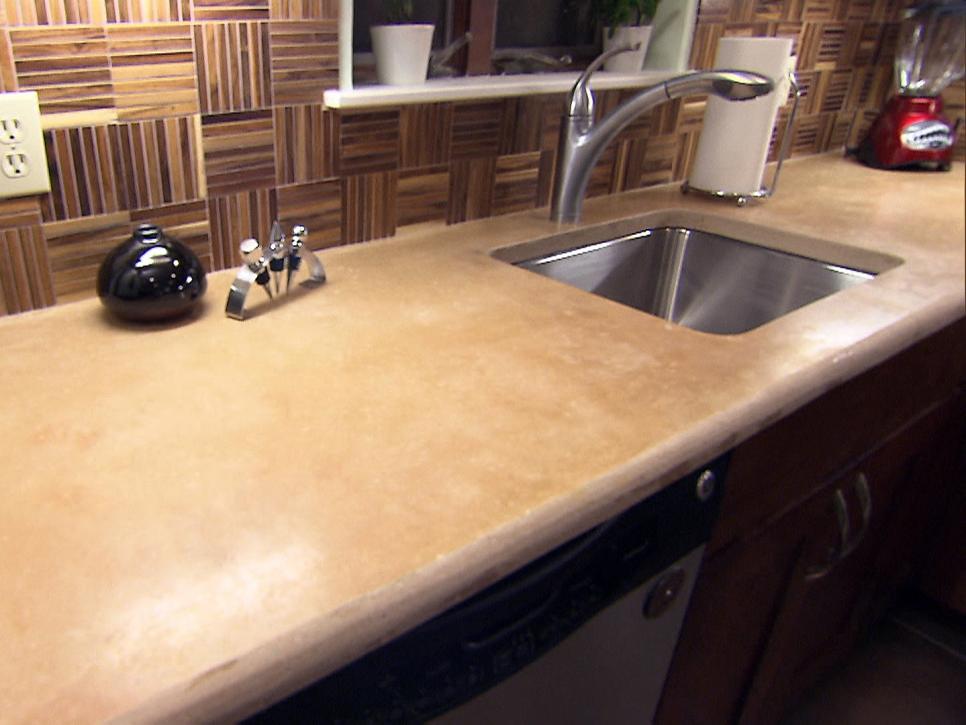
Are concrete countertops prone to cracking or chipping?
While concrete countertops are durable, they can be prone to cracking or chipping if not properly installed or maintained. Proper reinforcement, sealing, and regular maintenance can help prevent these issues and prolong the lifespan of concrete countertops.
Can I use abrasive cleaners or harsh chemicals on concrete countertops?
It’s not recommended to use abrasive cleaners or harsh chemicals on concrete countertops, as they can damage the sealant and potentially discolor or etch the surface. Instead, clean the countertops with mild soap and water or a pH-neutral cleaner specifically formulated for use on concrete surfaces.
How often do concrete countertops need to be sealed?
Concrete countertops should be sealed upon installation and resealed regularly, typically every 1-3 years depending on the type of sealant used and the level of wear and tear. Regular sealing helps to protect the surface from stains, moisture, and damage, prolonging the lifespan of the countertops.
Can I install concrete countertops myself, or do I need to hire a professional?
While DIY concrete countertop kits are available for those with experience in concrete work, it’s generally recommended to hire a professional contractor for the installation of concrete countertops. Professional installers have the expertise and equipment necessary to ensure a successful and long-lasting installation.
Are concrete countertops suitable for outdoor use?
Yes, concrete countertops can be used outdoors in applications such as outdoor kitchens, bars, or patio countertops. However, it’s essential to use a sealant specifically formulated for outdoor use to protect the countertops from exposure to UV rays, moisture, and other outdoor elements. Regular maintenance and resealing may also be required to preserve the appearance and durability of outdoor concrete countertops.
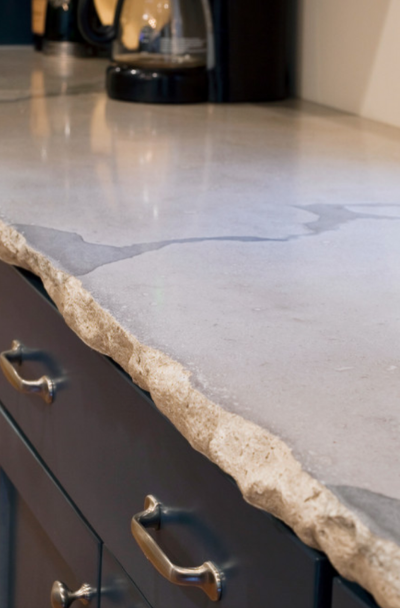
Creative Concrete Countertop Designs

Things You Should Know Before Choosing Concrete Countertops
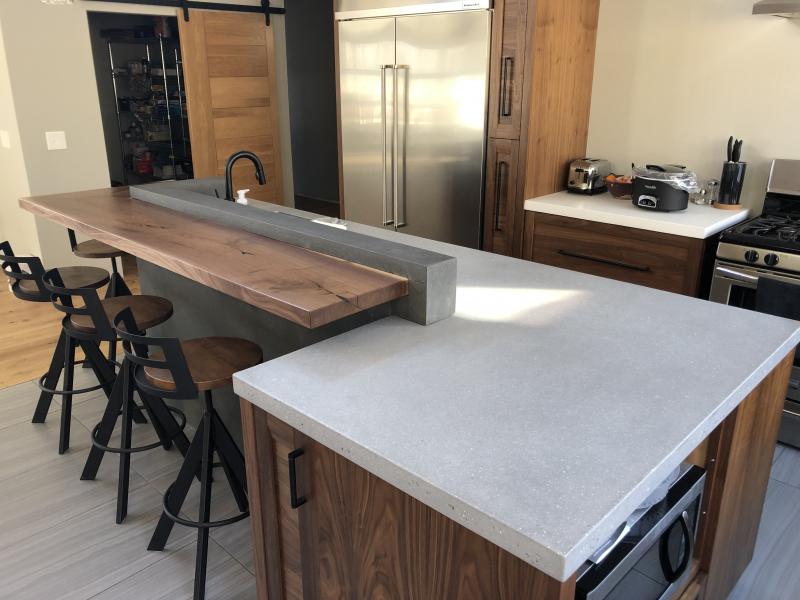
Measuring Concrete Countertops Characteristics, Pros, and Cons
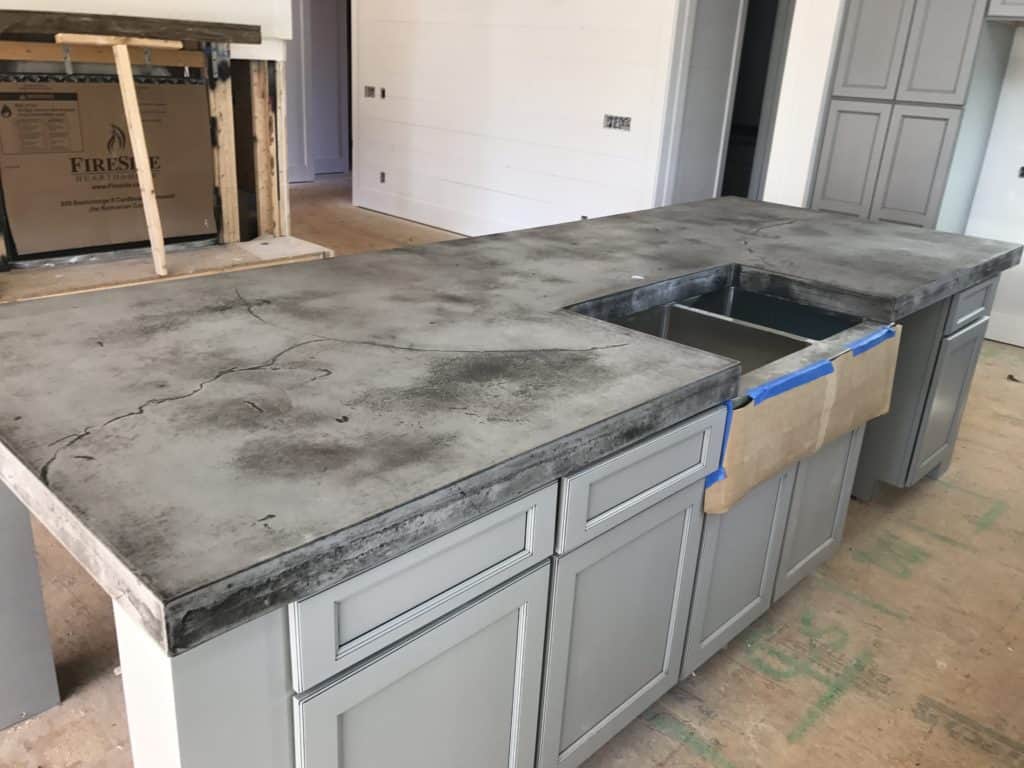
Concrete Countertops – Pros, Cons, DIY & Care
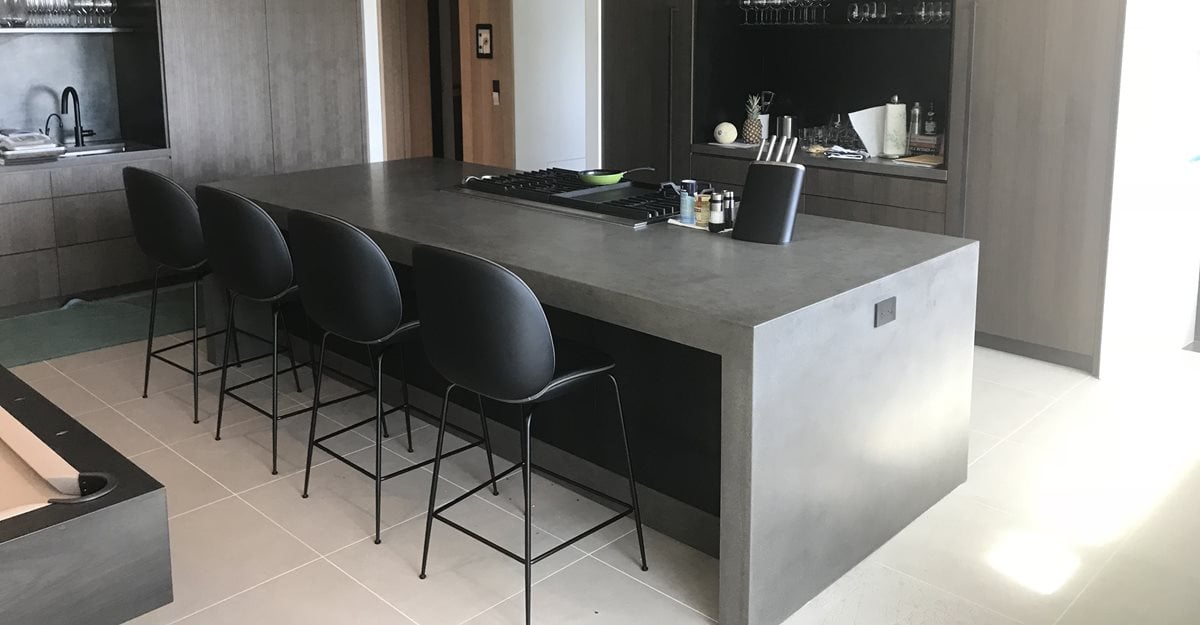
Creative Concrete Countertop Designs To Inspire You Concrete

Concrete Countertops Ideas

Related articles:
- Cost Of Concrete Countertop Per Square Foot
- Vibrating Table For Concrete Countertops
- Concrete Countertop Coatings
- How To Make Concrete Countertops For Outdoor Kitchens
- Concrete Countertop Edge Profile Forms
- How To Build An Outdoor Concrete Countertop
- Glass In Concrete Countertops
- Concrete Countertops That Look Like Marble
- Concrete Countertops For Kitchens
- Concrete Countertop For Outdoor Kitchen
